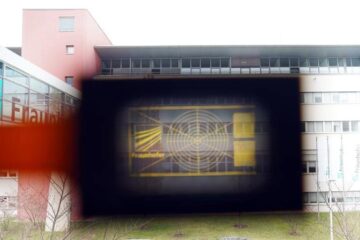Manchester launches £40m ‘light’ research institute

The University of Manchester is to launch a new £40m world-class research institute, which will pioneer cutting-edge light and laser technologies.
The Photon Science Institute (PSI), which will be launched on January 18, with support from the Northwest Regional Development Agency (NWDA), will be the largest research and teaching centre of its kind in the UK with a projected annual research income of £5m and more than 30 full-time academic staff.
Photon Science – ‘light for science’ – encompasses the application of light in many diverse fields. Common everyday applications include, for example, optical fibre telecommunications and DVD players.
Professor Klaus Müller-Dethlefs, who is internationally recognised for his contributions to molecular spectroscopy, having invented the widely adopted ZEKE (Zero Electron Kinetic Energy) photoelectron method, is leading the Institute as its Director.
Research will focus on the development and application of new and existing laser technologies and systems spanning medicine, pharmaceutical, the life sciences and the physical sciences. Projects will include the development of new optical materials (e.g. solar cells) and the development of new non-invasive medical technologies (e.g. measuring blood sugar levels without taking a blood sample, which will be of vital interest to diabetics).
An example of current research within the Institute is the use of micro tweezers, lasers beams used like tweezers, to manipulate micro particles such as biological cells. Potential applications for this technology include the characterisation and manipulation of single human cells.
Professor Müller-Dethlefs, said: “Using the most advanced lasers and optical technologies we will be taking on some very challenging problems of science with applications in the world of medicine, biosciences, engineering, environmental and physical sciences.
“Our vision is to position the Photon Science Institute as a world leading centre for photon science research and development with an emphasis on knowledge transfer and innovation within industry.”
The PSI will boast over £15m worth of state of the art laser equipment and is soon to be based within a new £55m University building, scheduled for completion in 2007. A full-time postgraduate MSc in Photon Science will be offered from October 2006.
Professor Pavel Hobza, of the Academy of Sciences of the Czech Republic and Professor Wolfgaard Demtroder, of the University of Kaiserstautern (Germany), will be appointed as Fellows of the PSI on January 18.
Steven Broomhead, NWDA Chief Executive, said:
“The NWDA welcomes the establishment of the Photon Science Institute at the University of Manchester. It will be a significant addition to the scientific strength of the region and we look forward to it becoming one of the world’s leading centres of excellence in this exciting area.”
Media Contact
More Information:
http://www.manchester.ac.uk/aboutus/news/All latest news from the category: Physics and Astronomy
This area deals with the fundamental laws and building blocks of nature and how they interact, the properties and the behavior of matter, and research into space and time and their structures.
innovations-report provides in-depth reports and articles on subjects such as astrophysics, laser technologies, nuclear, quantum, particle and solid-state physics, nanotechnologies, planetary research and findings (Mars, Venus) and developments related to the Hubble Telescope.
Newest articles

Wildfire danger to increase due to climate change
WSL Institute for Snow and Avalanche Research (SLF) researchers expect an elevated wildfire danger in the Alpine Foreland from 2040 onwards due to changing meteorological conditions. The danger currently remains…

Advanced Brain Science Without Coding Expertise
Researchers at Helmholtz Munich and the LMU University Hospital Munich introduce DELiVR, offering a new AI-based approach to the complex task of brain cell mapping. The deep learning tool democratizes…

Transparent emissive microdisplays
… for ultra-light and compact augmented reality systems. As part of the HOT project (High-performance transparent and flexible microelectronics for photonic and optical applications), scientists from the Fraunhofer Institute for…





















